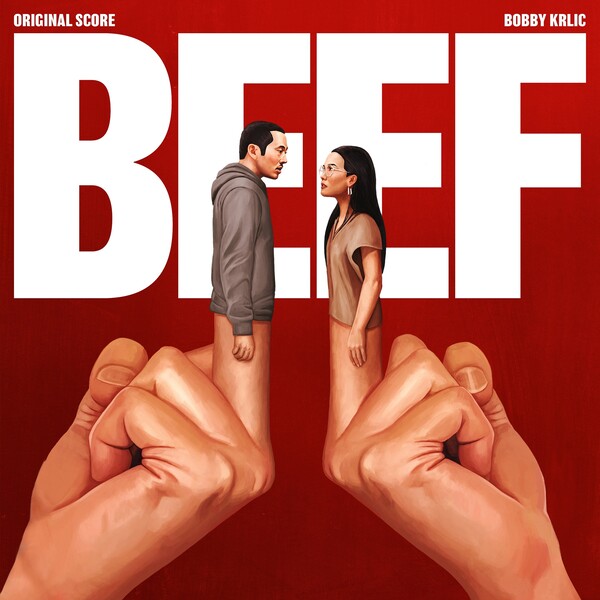The dark comedy unpacks the universal yet complex emotion of anger
By BRANDON NGUYEN — arts@theaggie.org
Lea este artículo en español.
“That’s what’s wrong with the world today, man. They want you to feel like you have no control,” Danny Cho, played by Steven Yeun, says in the first episode of Netflix’s new dark comedy series “Beef.”
His experience is, no doubt, relatable; be it blaming your bad day on your parents for not seeing eye-to-eye with you because of a “generational gap,” on capitalism for making the rich richer or on the pandemic for trapping you in your house for months on end. For Cho, his cynicism becomes more apparent upon a road-rage encounter instigated by Amy Lau, played by Ali Wong, setting the tone for the remainder of the show.
While “Beef” opens with an arguably commonplace incident, it off-roads dismally (though comedically for the viewer) towards a vengeful feud as the two characters attempt to make the other’s life as terrible as possible in the following episodes.
What makes “Beef,” created and written by director Lee Sung Jin and produced by A24, one of the more insightful, reinvigorating and compelling shows of the year so far is its exploration of a universal yet uniquely complex emotion: anger. Every unhappy character is unhappy for different personal reasons; how they each cope and channel this unhappiness reveals that there is much more to the high-speed, middle-finger-flipping chase of life than meets the eye.
Cho is a struggling handyman and contractor scrambling to accumulate enough money to build a house in Los Angeles for his parents who were forced to return to Korea. Lau, who married into art money, is an entrepreneur desperately trying to sell her small houseplant business to relieve years of stress and putting up a facade in hopes of finally being able to stay home and spend more time with her husband George (played by Joseph Lee) and her daughter June (played by Remi Holt). They are both close to their breaking points and following their near fender-bender incident, they become each other’s last straws.
The dark, thriller comedy could have easily followed the cliché class-war story: Cho, the less fortunate financially of the two, comes out on top with a new house and his family reunited while Lau deservedly loses everything due to an inability to sell her business and her marriage has a fallout upon deflection of her stresses onto her husband and daughter. Lee Sung Jin, however, puts a spin on this chaotic feud storyline with the idea that the biggest jerk you meet may be fighting battles you know nothing about.
The show’s title is also intentional in name, playing on the word “beef.” Colloquially, beef means a feud or dispute you have with someone — a fitting description of Cho and Lau’s relationship. Lee Sung Jin also plays with its symbolic meaning, exploring the layers of the word, with how anger — even superficial, petty anger — can be liberating and provide some semblance of control (at least temporarily).
The end of the first episode reveals a nuance to the emotion after Cho tracks down Lau’s license plate and her address to ask her to “use the guest bathroom” before making a run for it (you can guess what he does out of childish pettiness). It’s the first time you see both of their faces light up. Their beef will become the worst thing that has happened to either of them, but in this scene, it is also the best. They fight not just out of pride, but also out of the steadfast belief that their rage might somehow make everything right.
Playing on the title in another way, one of the motifs that Lee Sung Jin weaves through “Beef” is hunger. Cho has an addiction to Burger King — he eats like it’s his job, straining and puffing in that hillside scene in the first episode — while Lau has a sweet tooth, a legacy of her dark childhood as we come to learn that she has passed the trait on to her daughter, who loves Skittles. Despite their differences, they are more alike than it seems, united by the hateful relationship they have.
Lee Sung Jin’s “Beef” is worth the watch, broadly highlighting how anger can also, for some people, be meat. It fills an emptiness, it sustains, it temporarily satisfies — even if, in excess, it’s terrible for your heart.
Written by: Brandon Nguyen — arts@theaggie.org








